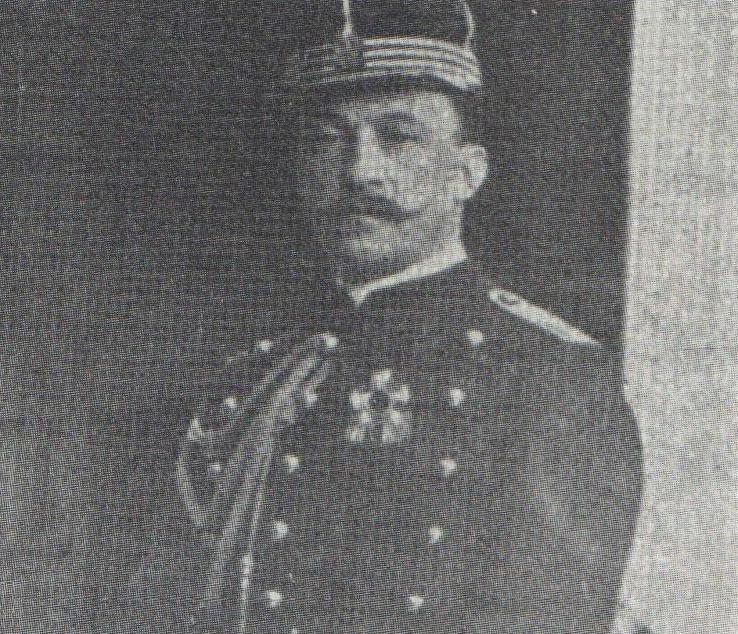1. Early Life and Family
Pablo Escandón y Barrón was born into a distinguished and affluent family with deep roots in Mexico. His early life was shaped by his aristocratic background and the political climate of the time.
1.1. Birth and Family Background
José Pablo Eustaquio Manuel Francisco de Escandón y Barrón was born on May 4, 1856, in Mexico City. He hailed from an old aristocratic family that owned extensive haciendas in the nearby state of Morelos. He was the elder brother of Manuel de Escandón y Barrón and Eustaquio de Escandón y Barrón, both of whom also became notable polo players and competed alongside him in the Olympics.
1.2. Education
Information regarding Pablo Escandón y Barrón's formal education is limited in available records. However, given his aristocratic background, it is presumed he received a comprehensive education typical of his social standing, likely including private tutoring and potentially studies abroad.
2. Sports Career
Pablo Escandón y Barrón was a dedicated polo player, and his most notable achievement in sports came during his participation in the 1900 Summer Olympics.
2.1. Olympic Polo Participation
In 1900, Pablo Escandón y Barrón was a key member of the Mexican polo team that competed at the 1900 Summer Olympics in Paris. The team, which included his two younger brothers, Manuel and Eustaquio, along with Guillermo Hayden Wright, secured a bronze medal. This achievement marked a significant moment for Mexican sports on the international stage.
2.2. 1900 Olympic Tournament Details
The polo tournament at the 1900 Paris Olympics featured five teams, many of which comprised players of mixed nationalities. The participating teams included the Bagatelle Polo Club de Paris, BLO Polo Club Rugby, Compiégne Polo Club, the eventual winners Foxhunters Hurlingham, and the Mexican team, which was unique in that it did not have an official team name.
The Mexican team played only one game, which they lost to the BLO Polo Club Rugby. Despite this, they were tied for third place with the Bagatelle Polo Club de Paris. At the time, the rules of the tournament did not stipulate a third place playoff, leading to both teams being awarded the bronze medal. However, the official recognition of their bronze medal did not occur immediately. In the 1900 Olympics, the winners received a silver medal instead of the gold, and the second-place team received a bronze. It was only later, when modern Olympic medal rules were established, that previous results were updated, and the Mexican team's bronze medal was officially recognized.
3. Political Career
Pablo Escandón y Barrón's political career was intertwined with the turbulent era of the Porfiriato and the subsequent Mexican Revolution.
3.1. Governorship of Morelos
Escandón y Barrón served as the Governor of Morelos from 1909 to 1911. His tenure occurred during the final years of the Porfiriato, the long-standing autocratic rule of Porfirio Díaz. As a "Porfirian" governor, his administration was part of a system characterized by centralized power, economic modernization, and often, suppression of political dissent and social unrest. His governorship in Morelos, a state known for its agricultural wealth and social inequalities, placed him at the heart of the growing tensions that would soon erupt into revolution.
3.2. Deposition and Political Context
Pablo Escandón y Barrón's political career came to an abrupt end when he was deposed in 1911 during the early stages of the Mexican Revolution. This period marked a nationwide uprising against the Porfirian regime, fueled by widespread discontent over political repression, economic inequality, and the lack of democratic processes. As a governor appointed under the Porfiriato, Escandón y Barrón was part of the old guard that the revolutionary forces sought to dismantle. His removal from office symbolized the broader collapse of the Porfirian establishment and the shift towards a new political order in Mexico.
4. Personal Life
Beyond his public roles, Pablo Escandón y Barrón's personal life was closely tied to his family. He was particularly close to his younger brothers, Manuel and Eustaquio, with whom he shared a passion for polo and competed at the highest level. Further details about his personal relationships or family life beyond his immediate siblings are not extensively documented in available sources.
5. Death
Pablo Escandón y Barrón died on March 31, 1929, in Mexico City, the same city where he was born.
6. Assessment and Legacy
Pablo Escandón y Barrón's legacy is a blend of sporting achievement and political involvement during a pivotal period in Mexican history.
6.1. Sporting Achievements
His bronze medal in polo at the 1900 Summer Olympics stands as a significant milestone in Mexican sports history. As part of the first Mexican team to achieve an Olympic medal, Escandón y Barrón contributed to establishing Mexico's presence in international athletic competitions. His participation, alongside his brothers, highlights a unique family contribution to early Olympic sports.

6.2. Political Impact and Controversy
Pablo Escandón y Barrón's role as Governor of Morelos during the last years of the Porfiriato places him within a controversial political context. The Porfiriato, while bringing some economic development, was largely an autocratic regime that suppressed democratic freedoms and exacerbated social inequalities, particularly in agrarian states like Morelos. His governorship, therefore, represents the continuation of a system that ultimately failed to address the deep-seated grievances of the Mexican populace, leading to the outbreak of the Mexican Revolution. His deposition in 1911 was not merely a personal event but a direct consequence of the revolutionary movement's success in overthrowing the Porfirian establishment. His political career, though brief, serves as a historical marker of the transition from an old, aristocratic order to a new, revolutionary era in Mexico.